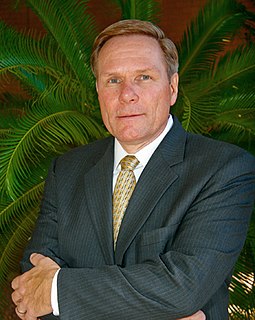A Quote by Brian Swimme
If you let hydrogen gas alone for 13 billion years it will become giraffes, rose bushes and humans.
Related Quotes
Most educated people are aware that we are the outcome of nearly 4 billion years of Darwinian selection, but many tend to think that humans are somehow the culmination. Our sun, however, is less than halfway through its lifespan. It will not be humans who watch the sun’s demise, 6 billion years from now. Any creatures that then exist will be as different from us as we are from bacteria or amoebae.
If we do find ET, we will at least have something in common with them. They may live on planet Zog and have seven tentacles, but they will be made of the same kinds of atoms as us. If they have eyes, they will gaze out on the same cosmos as we do. They will, like us, trace their origins back to a 'Big Bang' 13.8 billion years ago.
If we could magically transport ourselves back to the young Earth, when it was only a billion years old or two billion years old or three billion years old or four billion years old, we wouldn't be able to survive. We would have a hard time surviving if we were transported to the time when dinosaurs were around.
Although humans today remain more capable than machines for many tasks, by 2030 machine capabilities will have increased to the point that humans will have become the weakest component in a wide array of systems and processes. Humans and machines will need to become far more closely coupled, through improved human-machine interfaces and by direct augmentation of human performance
If God wanted to create life and create humans, it would be slightly odd that he should choose the extraordinarily roundabout way of waiting for 10 billion years before life got started and then waiting for another 4 billion years until you got human beings capable of worshipping and sinning and all the other things religious people are interested in.
By the time of the Singularity, there won't be a distinction between humans and technology. This is not because humans will have become what we think of as machines today, but rather machines will have progressed to be like humans and beyond. Technology will be the metaphorical opposable thumb that enables our next step in evolution.





























